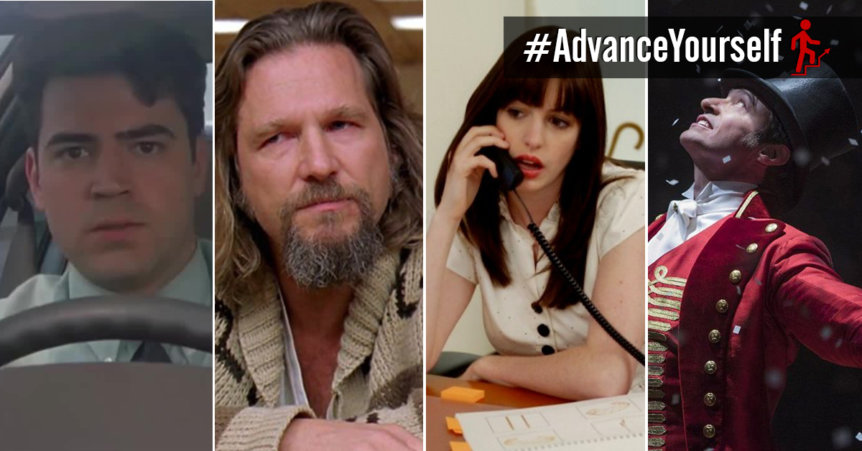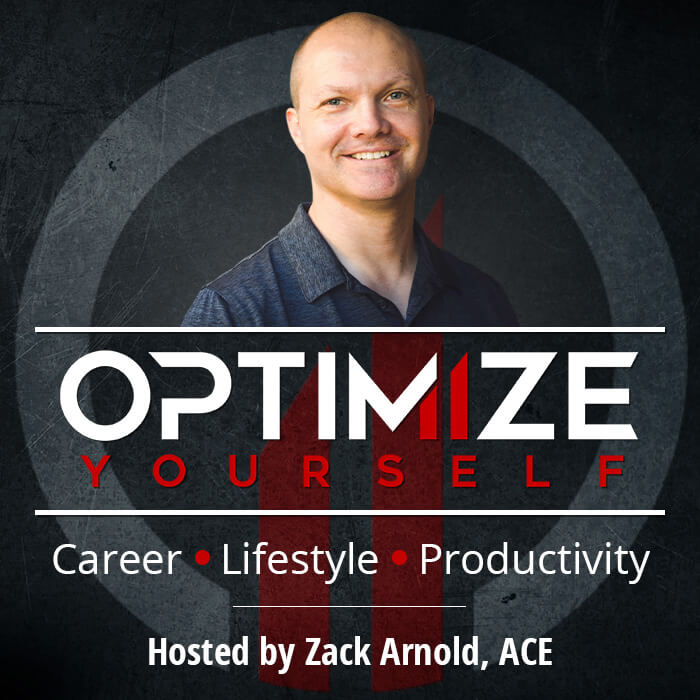

Zack Arnold
The Four Types of Creative Jobs (and The Secret To Knowing Which Is the Perfect Fit For You)
If you intend to climb the career ladder straight to the top, step #1 is understanding the four different types of creative jobs. Only once you understand where your job fits in can you then reframe your perspective to get the most out of every opportunity (or know if it’s time to bail out).
Imagine for a moment you’ve wanted to be a doctor your whole life, and the first year of medical school is finally here.
After getting a toy stethoscope for your fifth birthday, you spent the next eighteen years dreaming of wearing the white coat, helping others in need, and writing the letters ‘M.D.’ after your name.
Yet despite knowing that being a doctor is the only true career path for you, you’re frustrated, anxious, and depressed.
Why?
You feel like all the work you’re putting in could potentially be a total waste of time because you haven’t seen enough results yet….you want to be a doctor NOW.
“What if medical school isn’t right for me? I should just become an independent doctor instead.”
“Maybe I should network with medical directors at local hospitals to see if there are any openings. I know I have the skills and can prove myself today.”
“I deserve the white coat. Why hasn’t someone discovered me yet?”
Wait a second…no medical student has ever been pulled out of their first year of medical school and given a white coat and a degree because they were “discovered.”
While no one would disagree that becoming a doctor is incredibly hard, it’s also simple (not to be confused with easy). It’s common knowledge that becoming a doctor requires everyone to follow the same path, and following that path combined with hard work and good grades almost guarantees a career in medicine.
Success Rarely Has a Defined Path
Unfortunately following a single defined path is a luxury you don’t have if you work in a creative field (especially filmmaking).
You may have gotten your first camera at five years old and spent every moment since learning the crafts of directing, editing, cinematography, etc. Yet despite the fact that in your mind you are a “filmmaker,” your current job title says otherwise.
Let’s say you’re an assistant, and your job duties include fetching the director’s coffee, pickup up the producer’s dry cleaning, and getting lunch for the grumpy editors who never talk to you.
In short: You’re a gofer.
You’re confident you have the skills to be a successful filmmaker, but you feel like all you do is spin your wheels, stuck in the exact same place.
Not knowing whether or not your efforts at your current job will pay off has left you frustrated, anxious, and depressed. You’re confident you have the skills to be a successful filmmaker, but you feel like all you do is spin your wheels, stuck in the exact same place.
Even worse, you recently read a story about director Ryan Coogler who’s first feature film right out of film school Fruitvale Station won him the grand jury prize at Sundance, and now he’s directing Marvel’s Black Panther!
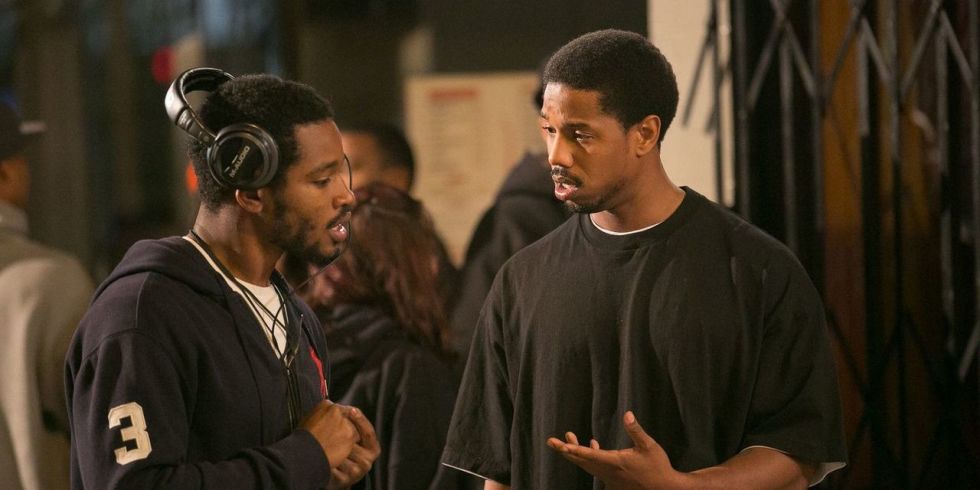
Ryan Coogler and Michael B. Jordan, two guys way cooler than me and you.
Knowing there are real people not much older (or even younger) than you who are light years ahead in the same career is demoralizing, especially when you have no clue if your current job is leading you to the promised land…or completely wasting your time.
Resentment creeps in, your performance suffers, and what was formerly an “opportunity” has become an “obligation.”
What if simply understanding where your current job fits into your own unique career path completely changed the way you approach your duties day-to-day and you suddenly had 100% confidence that this was the exact path leading to your dream job.
Imagine having the same level of clarity as a first-year medical student that you were in the right place and all that mattered were your results.
Would your mindset change?
Your mood?
Your performance?
If you intend to climb the career ladder straight to the top, your first step is understanding the four different types of creative jobs. Only once you understand where your job fits in can you then reframe your perspective to get the most out of every opportunity (or know if it’s time to bail out).
The ‘Paycheck’ Job
The ‘Paycheck’ job is unfortunately the most common simply because the vast majority of jobs in the world are things that need to get done that most people just don’t want to do. It pays the rent and keeps you from starving, but that’s about it.
- You aren’t passionate about the work you do
- You aren’t building your professional network
- You aren’t learning new skills
- You definitely aren’t climbing the right career ladder
- It’s boring
- It’s stressful
- You don’t necessarily like your co-workers
- You get sick often and never have any energy
- Time feels like it stands still
- You live for the weekends
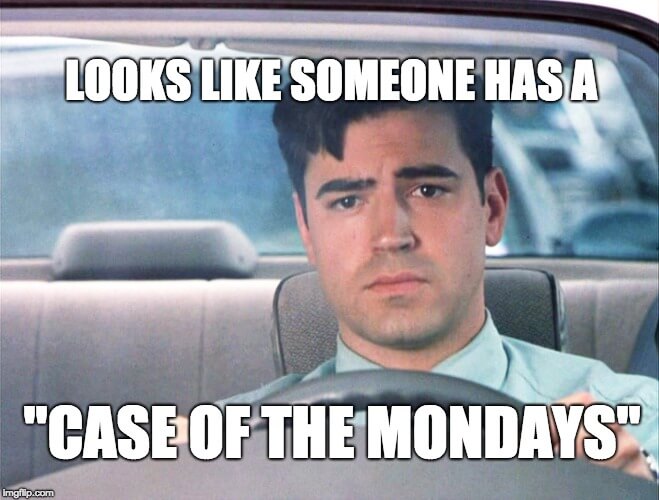
Once your basic needs are met, the ‘Paycheck’ job is simply stealing your time, your energy, and your life.
To be clear: There is nothing wrong with working a ‘Paycheck’ job if the most important priority in your life is to cover your rent, buy groceries, or support your family. There is no shame in working to survive, it’s a stage of life everyone goes through at some point. But once your basic needs are met, the ‘Paycheck’ job is simply stealing your time, your energy, and your life.
Staying at a ‘Paycheck’ job for longer than necessary comes at a tremendous cost that in my opinion far outweighs any financial benefits, and it can lead to:
- Diminished passion for your craft
- Chronic anxiety
- Irritability
- Depression
- Total. Creative. Burnout.
Assuming you have no interest in working a ‘Paycheck’ job the rest of your life and you’d prefer a different rung on the ladder, what’s the next step?
The ‘Lifestyle’ Job
The ‘Lifestyle’ job is a significant upgrade from the ‘Paycheck’ job. Your basic financial needs are met so it fulfills the main benefit of the ‘Paycheck’ job, but it also comes with a host of additional benefits:
- Your hours are good which allows you to spend more time with your family
- Your commute is awesome
- You love your co-workers
- Your work environment is virtually stress-free
- The pay is good and you have “fun money” to spare every month
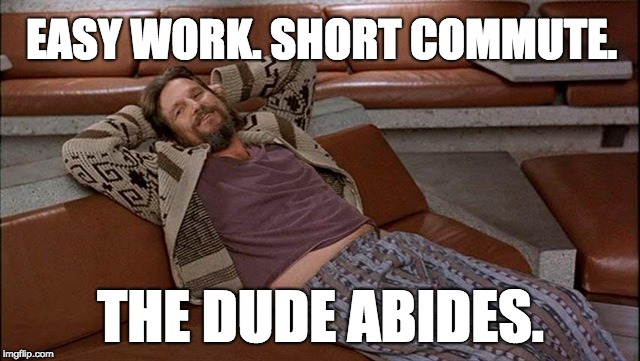
And the job itself? Well…it’s…”fine.”
Therein lies the rub.
While the ‘Lifestyle’ job has a host of fantastic benefits for your health and well-being, it also isn’t moving you forwards:
- You aren’t creatively pushed outside your comfort zone
- The work is pretty easy (and sometimes feels downright boring)
- You aren’t learning new skills
- You aren’t expanding your professional network
- You aren’t particularly proud of the work and perhaps hesitate to tell other people what you’re working on (or you hide it on your resume altogether)
There are many people who would happily work a ‘Lifestyle’ job the remainder of their careers carefree. But if the words safe, reliable, and dependable bore you to death, what’s next?
The ‘Career’ Job
Unlike the two previous job types, the ‘Career’ job is propelling you forwards at light speed and has a host of benefits:
- You are pushed outside your creative comfort zone and growing every day
- You are learning new technical skills
- You are meeting new people and expanding your professional network
- You are building your resume and proud to share what you’re working on
- Your current project might even be a total “resume-changer”
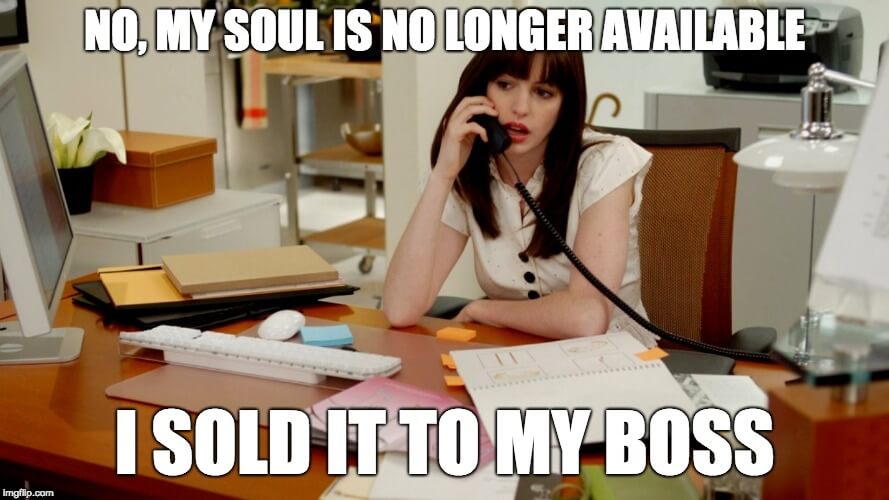
While the ‘Career’ job sounds like a dream in many ways, it’s far from being a ‘Dream’ job and has its own laundry list of drawbacks:
- You may have reduced your rate in exchange for experience (you might even be working for free)
- The hours are grueling and you barely have any time to manage life outside of work
- You are sacrificing time with your family and friends
- The commute totally sucks
- You are stressed out and constantly exhausted
- Your waning creativity often needs to be fueled by caffeine and energy drinks
Despite being a fantastic opportunity, a ‘Career’ job can only sustain for so long before it too leads to chronic health problems, mental health issues, and eventually total burnout.
There must be an alternative to choosing between either a healthy lifestyle or a successful career, right? RIGHT??????
The ‘Dream’ Job
The ‘Dream’ job is the top rung of the ladder. It has all the benefits of both the ‘Lifestyle’ and ‘Career’ jobs but with none of the shortcomings:
- You love your work
- You are creatively learning and growing every day
- You are always meeting new people and building your network
- The job and the work environment are both stress-free
- You love your co-workers
- The commute is amazing
- The pay is well beyond your basic needs
- The hours are awesome and you have plenty of time off during the year for vacations
- You are proud of the work you do every day and love sharing it with others
- You can’t imagine doing anything else
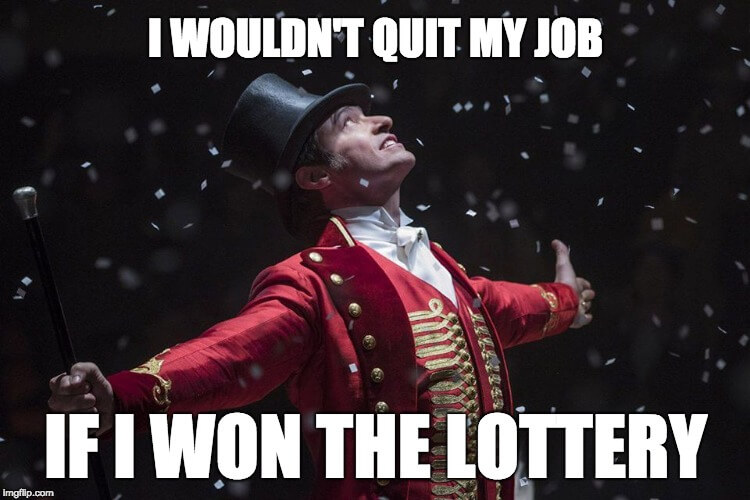
It’s extremely rare to find your ‘Dream’ job. Most people assume it will always be just that…a dream…and no amount of hard work can guarantee success.
What if instead of relying on “more hustle,” “putting your nose to the grindstone,” or “wearing your sleep deprivation badge of honor” there was a completely different factor that ultimately determined whether or not you landed your ‘Dream’ job and enjoyed the journey along the way?
The (Not-so-Secret) Secret to Success
Notice I don’t categorize specific job titles into the four different types listed above. That isn’t by accident…that is by design.
For example, I don’t classify “Janitor, intern, assistant, accountant, or PA” as ‘Paycheck’ jobs.
Conversely I also don’t classify “Director, editor, writer, or studio executive” as either ‘Career’ jobs or ‘Dream’ jobs.
Most people would assume an assistant who fetches coffee and dry cleaning must be working a ‘Paycheck’ job because the hours are long, the duties are downright miserable, and the quality of life sucks. But if that assistant works in an environment that fosters growth and there are networking opportunities, simply by recognizing the benefits that come along with that position, it has instantly upgraded to a ‘Career’ job.
On the flip side, it’s also conceivable that despite directing $200 million studio feature films for a living, you aren’t working your ‘Dream’ job, instead you simply have a ‘Paycheck’ job (see: Michael Bay).
Ultimately the only factor that determines which job type you have is the mindset you bring to it every single day.
Several years back I reached a shocking point in my career I never anticipated. After editing four seasons of Burn Notice, nobody wanted to hire me.
After editing four seasons of Burn Notice, nobody wanted to hire me.
I couldn’t find another editing job anywhere.
I assumed after working on a hit show I’d never have to look for work again, but I couldn’t have been more wrong. After several months of unemployment a referral from a colleague ended up landing me a job on a new show called Black Box, a medical procedural for ABC (with no recognizable stars).

Never heard of ‘Black Box’? Don’t worry, neither has anyone else.
If there’s one thing I have no interest in editing (ever), it’s a medical procedural. But here I was needing a steady income with zero other opportunities available. I knew at that moment if I was going to spend the next six months of my life doing creative work I had no interest in whatsoever, I had to shift my perspective for the sake of my mental health.
There was no question that Black Box was not my ‘Dream’ job.
Given the hours were long, it was a stressful first season show, and the commute sucked, it most certainly wasn’t a ‘Lifestyle’ job.
And at first glance for me personally it definitely wasn’t a ‘Career’ job because I wasn’t interested in working on a medical show.
So I guess I had to suck it up and accept that Black Box was just a ‘Paycheck’ job, right?
Punch in…do the bare minimum…punch out. Easy enough.
If I could narrow down the turning point of my entire career to one single moment, this was the moment.
As I sat in the parking lot my first morning at Black Box I closed my eyes, took a deep breath, and I told myself the number one goal of this job opportunity was to expand my professional network. That became my “One Thing.”
I consistently delivered great work every single day because I was confident that doing great work would lead to the opportunity to do more great work in the future.
Expanding my professional network required me to do excellent work every single day so the directors, producers, and show runners would want to work with me on future projects. Even though I wasn’t creatively interested in a medical procedural, I consistently delivered great work every single day because I was confident that doing great work would lead to the opportunity to do more great work in the future.
This single shift in perspective on day one of what could have been a dead-end ‘Paycheck’ job led me to editing two seasons of Empire (Ilene Chaiken was the showrunner of Black Box who then became the showrunner of Empire).
This single shift in perspective also led to editing three seasons of Shooter because the post-production producer loved working with me and wanted me on all of her future teams.
And this single shift in perspective has led to three different offers to edit tv pilots and a Netflix series because the creator of Black Box and one of the directors loved my work as well.
It wasn’t my ability to use Avid, my skills as a film editor, or resting on the laurels of my resume that landed me five seasons of editing work.
I landed five seasons of editing work because of my attitude.
Better opportunities will not lead to a better attitude. Having a better attitude will lead to better opportunities.
Learn more about the importance of attitude in my interview with with Oscar-winning editor Billy Goldenberg, ACE.
Now It’s Your Turn
Working in a creative field can be incredibly frustrating because there’s no guarantee the effort you put in every single day will pay off…ever. It’s conceivable that after 4 years of undergrad, 3 years earning a master’s degree, post-graduate internships and entry-level jobs, and yet another several years of mid-level jobs that you still end up becoming a real estate agent or insurance salesman.
While there’s no guarantee that you’ll become a feature film director after ten years of hard work like the guarantee doctors have, the one thing you can control is your attitude.
Perspective is everything.
If you’re working an entry-level job and hating every minute of it, instead of focusing on the things you’re not doing, try focusing instead on what you can learn from the things you are doing.
If you’re doing the type of job you want but working on projects you absolutely hate, think about how bringing the best version of your craft to the table every single day can lead to lasting relationships and future projects you will absolutely love.
If you’re bored at your current job because it doesn’t challenge you, focus on all of the lifestyle benefits you get from working close to home with co-workers you love with a steady paycheck and some ‘fun money’ to spare.
And if after examining every facet of your current job you can find absolutely no benefits whatsoever outside of the fact that it allows you to pay the bills every month…
…maybe it’s time to pull the plug.
Interested in getting the most out of every opportunity and having 100% confidence that your actions are leading you closer to your ‘Dream’ job? Enrollment for my brand new ‘Optimizers’ coaching program opens soon. Click here to join the waitlist.

